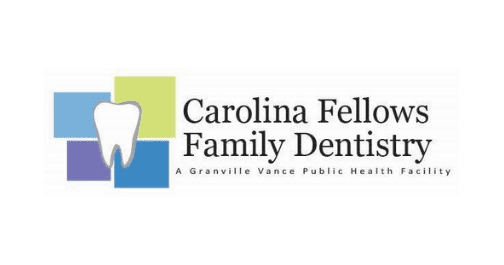Sandra Micou, office manager, and Brooke Arrington, dental hygienist, with Carolina Fellows Family Dentistry, were on Wednesday’s edition of WIZS’ Town Talk program to discuss April’s designation as Oral Cancer Awareness Month.
Part of the Granville Vance Public Health Department, Carolina Fellows Family Dentistry is a non-profit dentistry clinic serving Granville and Vance County residents of all ages, both the insured – through Medicaid or private insurance – and the uninsured. The recently opened dental office is located at 115 Hilltop Village in Oxford.
In addition to keeping their patients’ teeth healthy, Micou and Arrington said their office also strives to help patients prevent oral cancer of the mouth and throat.
“Oral cancer is usually caught by your dentist who will do a cancer screening during your normal cleanings,” said Micou. “This is one reason it’s so important to be seen every six months.”
According to Micou, over 50,000 new cases of cancer of the oral cavity and throat are diagnosed each year with an estimated 10,000 deaths occurring annually. In the U.S., it is believed that the 5-year survival rate is approximately 65% and depends on how early the cancer is found.
“Unfortunately, people don’t always go to see their dentist regularly; by the time it’s detected, it’s often pretty advanced and has spread to other parts of the body,” Micou said.
Arrington provided listeners with a list of oral cancer signs to be aware of, including:
- Lesions in the throat or mouth that bleed easily and do not heal
- Persistent red or white patch, lump, or thickening in the throat or mouth
- Ear pain
- Neck masses or wart-like masses
- Hoarseness lasting for a long time
- Numbness in the oral/facial region
- Coughing up blood
- Difficulty chewing, swallowing, speaking or moving the tongue or jaw (often late-stage symptoms)
Oral cancer rates for women have also greatly increased over the past decade, according to Micou. “Previously, oral cancer affected men 6-to-1 over women; now we are seeing 2-to-1 ratios.”
Micou said one explanation for this increase could be the prevalence of the Human Papillomavirus (HPV), especially among those who were born before the HPV vaccine was readily made available.
According to the CDC website, HPV is a sexually transmitted infection (STI) that can lead to several classifications of cancer, including oral. It is considered the most common STI, and it is estimated a large majority of the population has been exposed to the virus.
HPV vaccines are recommended for boys and girls ages 11-12, with catch-up vaccines encouraged through age 26.
Micou also reported that oral cancer occurs twice as often in the African-American population that in the white population, with 5-year survival rates being lower at only 33%.
One of the biggest risk factors for oral cancer – tobacco use – is especially high with the use of smokeless products that alter the oral tissue such as chewing tobacco or snuff, said Arrington.
Other risk factors include excessive alcohol consumption, HPV infections and diets low in fruits and vegetables.
Arrington said using tobacco products while drinking excessive amounts of alcohol increases your chance of developing oral cancer 30-fold.
To help prevent oral cancer, avoid risk factors such as smoking, using smokeless tobacco products and drinking alcohol, receive the HPV vaccine, eat a healthy diet, complete a monthly oral self-assessment and get regular oral exams from your dentist.
To hear the Town Talk interview with Sandra Micou and Brooke Arrington in its entirety, click here.
